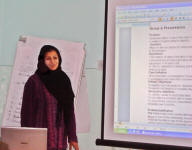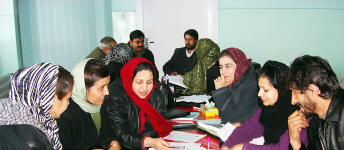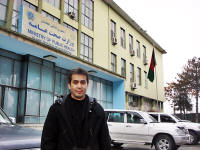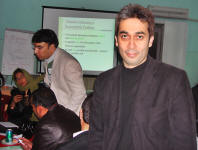Reproductive health research methodology training at the Ministry of Public Health
Kabul, Afghanistan - 3-12 January 2008
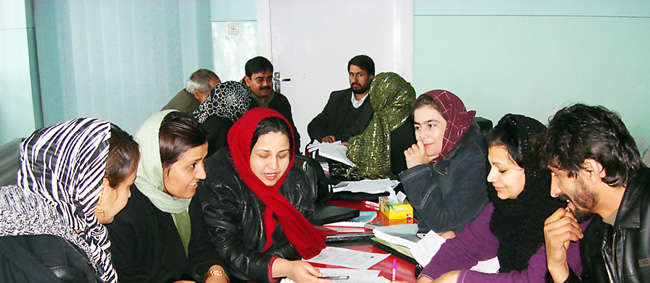
The first bloc of Research Methodology Training program on reproductive health was organized at the Ministry of Public Health in Kabul Afghanistan from 5 to 11 January. This program is the main component of Long Term Institutional Development Grant (LID) provided by WHO to developing countries.
The main goal of LID grant is to improve reproductive health in countries and regions through support to priority national research in particular that linked to improved operations of reproductive health programs. It collaborates in enhancing national capacity to conduct reproductive health research and to promote use of research results in policy making and planning in order to improve reproductive health care deliveries.
A total number of 23 Afghan doctors mostly female from different reproductive health institutions are enrolled in this training during 2008. The training is planned in three blocs with an interval of 6 weeks between each bloc. At the end of training, the participants with the technical assistance of scientific partners will develop a research project.
The scientific partners for this program are: Afghan Ministry of Public Health, World Health Organization (WHO), Geneva Foundation for Medical Education and Research (GFMER), Indian Institute of Health Management Research (IIHMR), Johns Hopkins University (JHU), and London School of Hygiene and Tropical Medicine (LSHTM).
Program
- Basic concept of epidemiology - Binay Kumar
- Reproductive health. An introduction to research - Binay Kumar
- Qualitative and quantitative research - Karim Abawi
- Doing your literature review: an overview - Binay Kumar
- Searching bibliographic databases effectively - John Iyers
- Research problem - Dhirendra Kumar
- Measure of disease frequency - Abdul Samad Hami
Images

